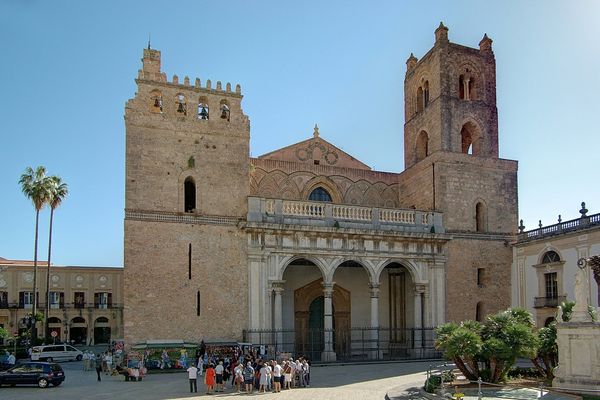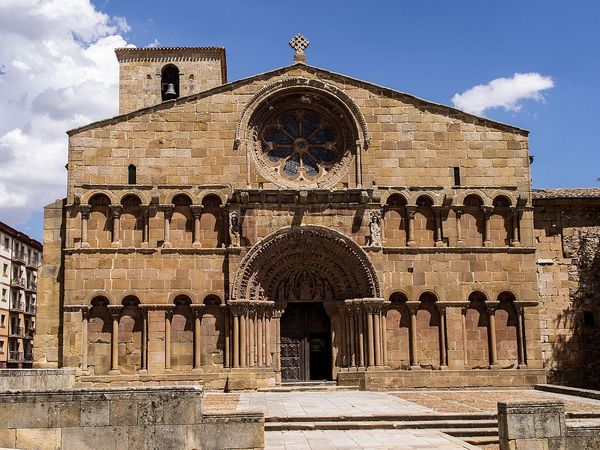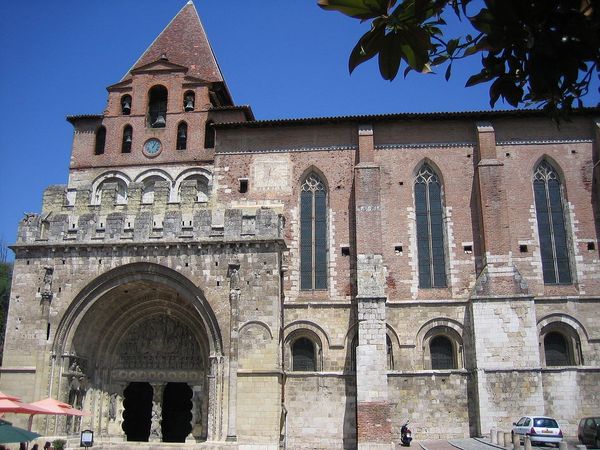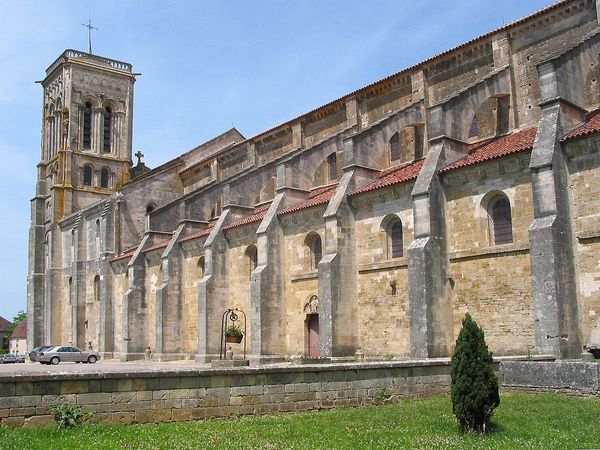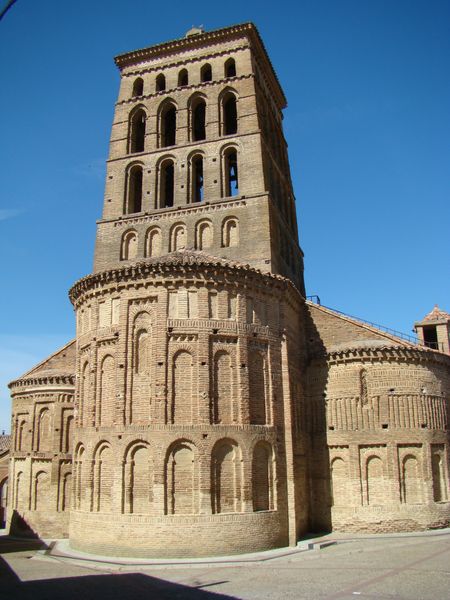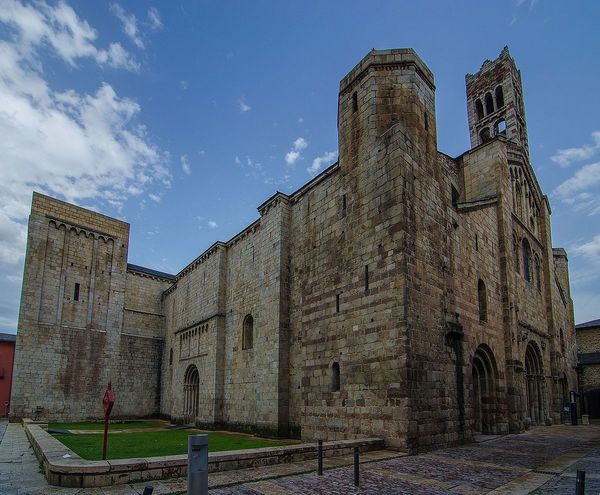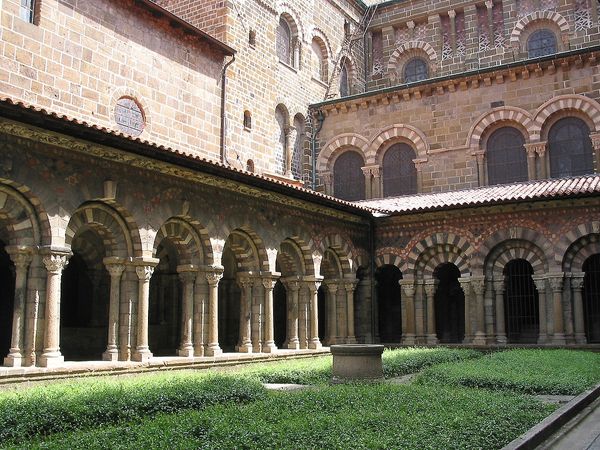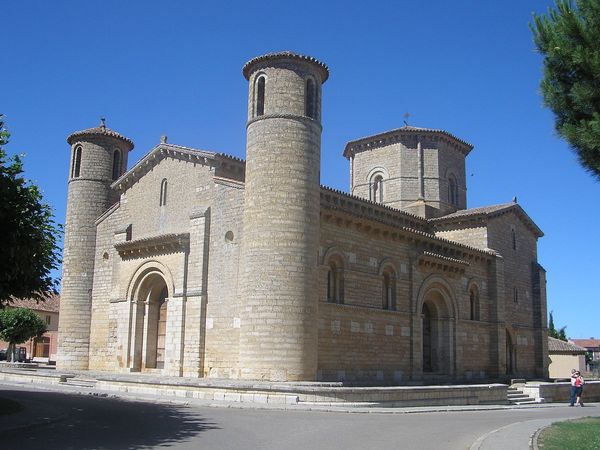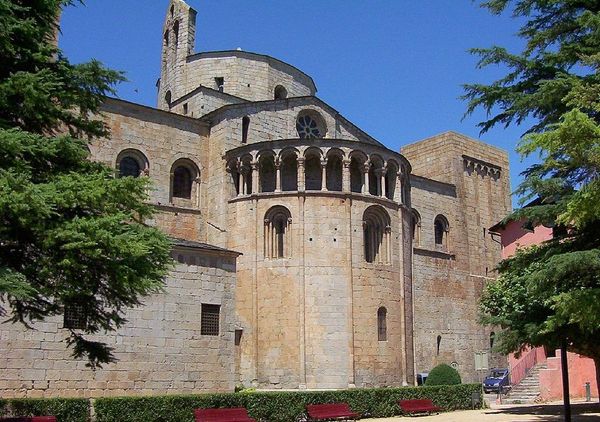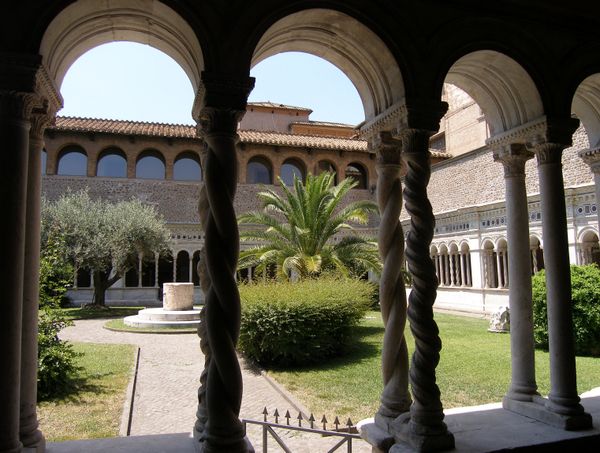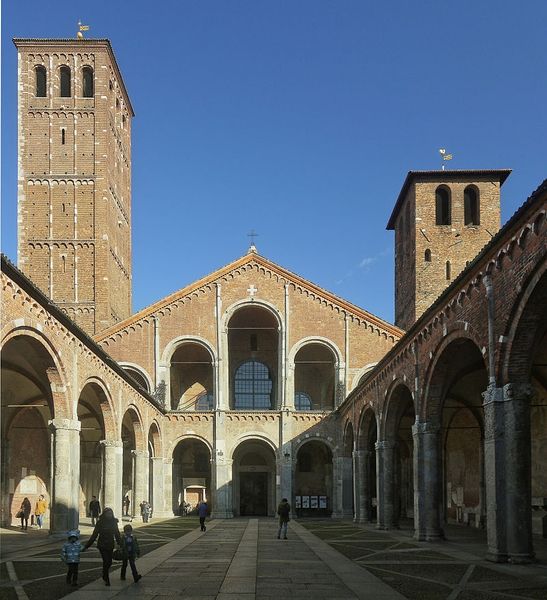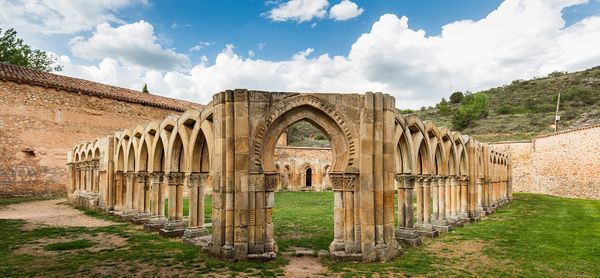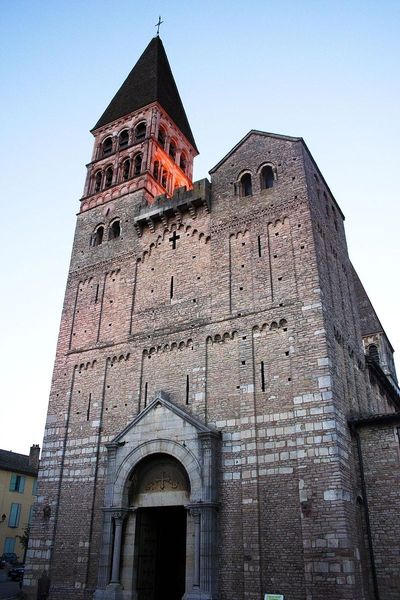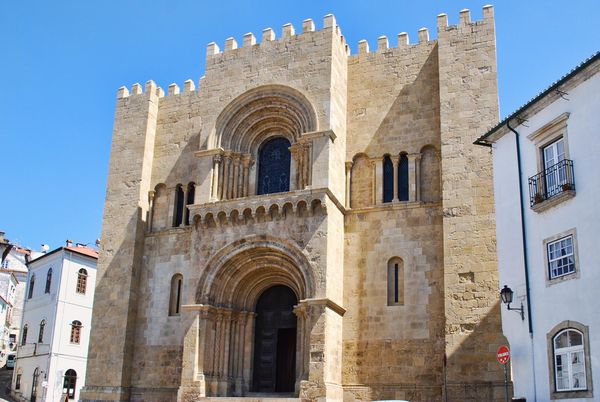
architecture
#
medieval
#
landscape
#
historic architecture
#
romanesque
#
architecture
Copyright: Public domain
San Lorenzo Church in Sahagún, Spain was built with brick by anonymous Romanesque architects sometime between the 11th and 13th centuries. This structure exemplifies how material choices shape architectural expression. Here, brick, a humble and readily available material, is elevated through skillful arrangement and design. The repetitive use of brick creates rhythmic patterns, defining the church's form and surface texture. Consider the labor involved in producing and laying these bricks, a testament to the collective effort and craftsmanship of the time. The choice of brick reflects not only local resources, but also a practical and aesthetic decision. It speaks volumes about the cultural values that prioritize functionality and durability, alongside the visual appeal. The interplay of light and shadow on the brick facade adds depth and character, enhancing the building's visual presence. This church demonstrates how architectural designs intertwine material, process, and social context, challenging our perception of art and craft.
Comments
No comments
Be the first to comment and join the conversation on the ultimate creative platform.
